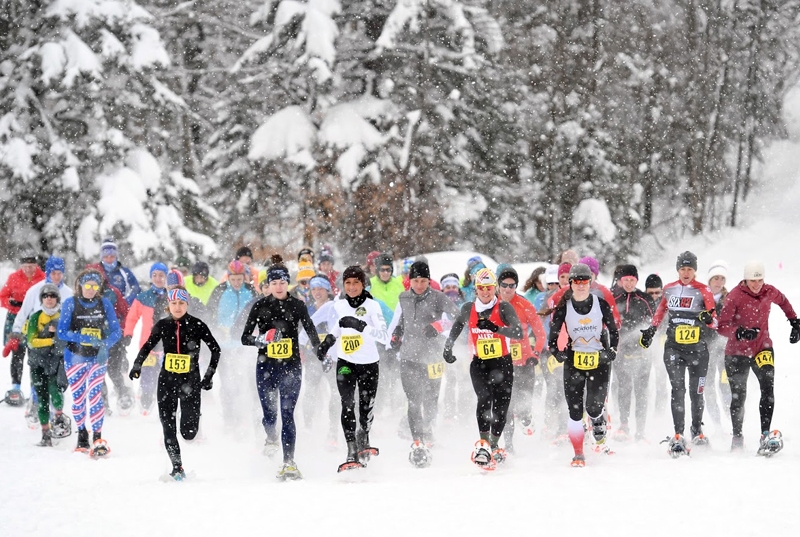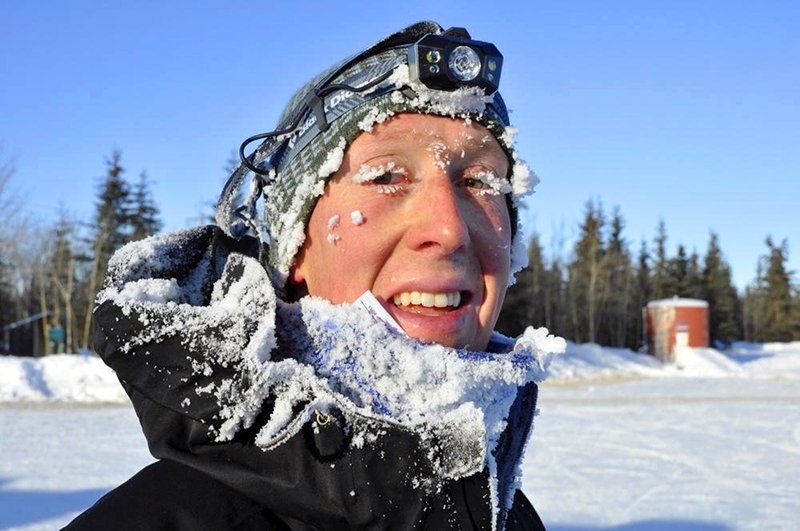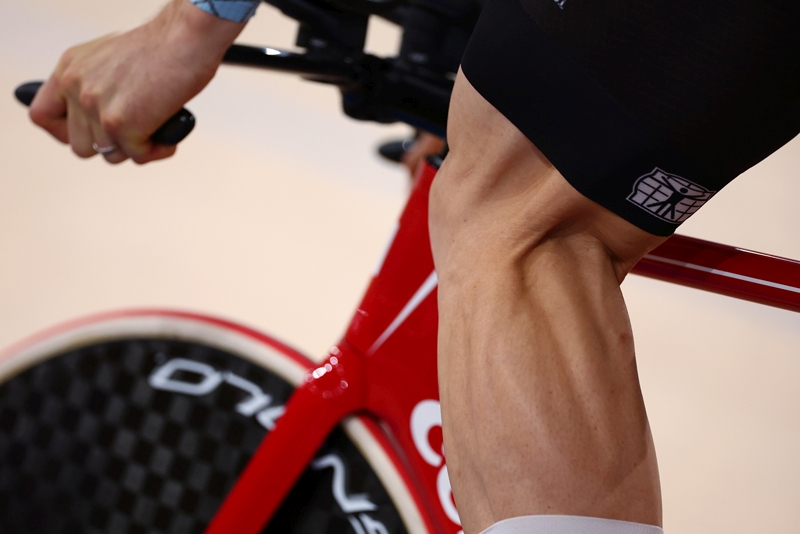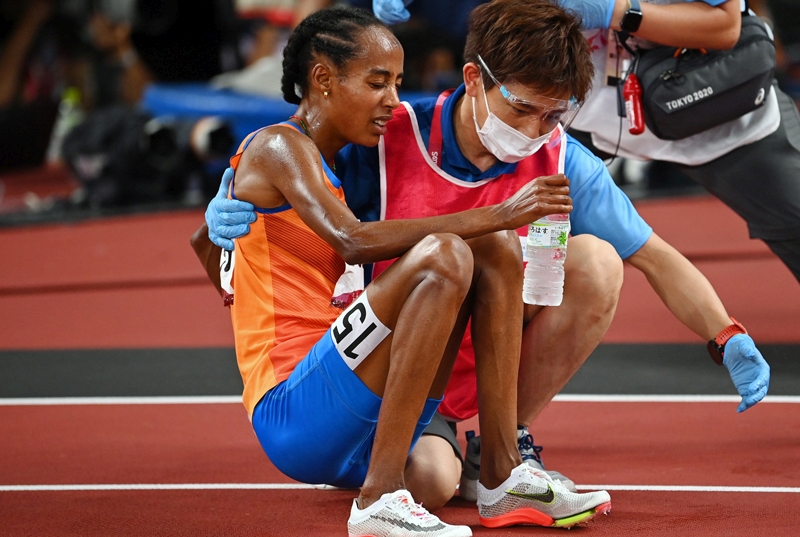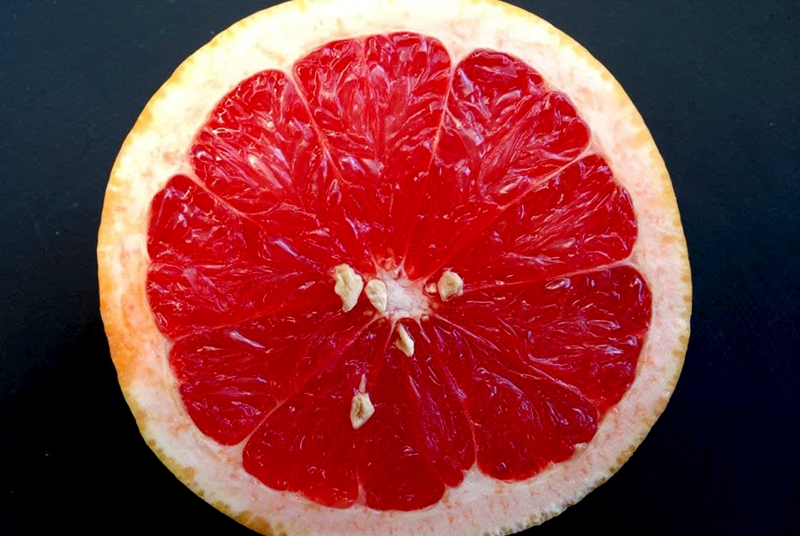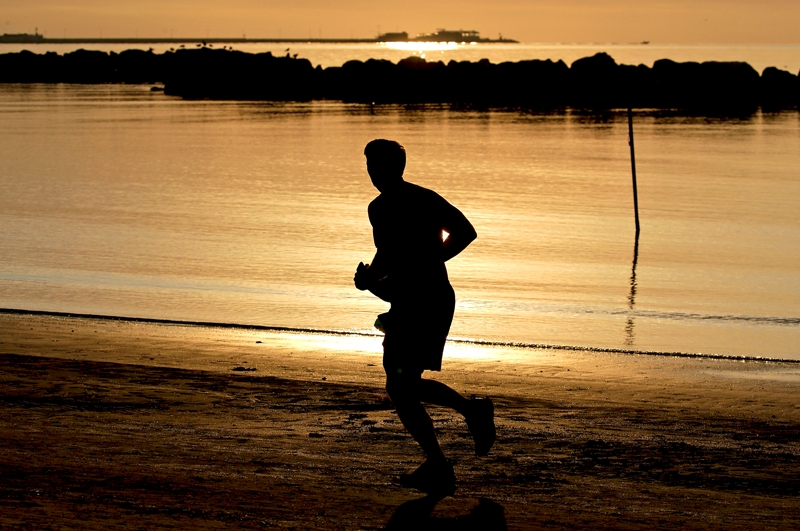You are viewing 1 of your 1 free articles. For unlimited access take a risk-free trial
Athletes and immunity: defend yourself against inclement weather!

When it comes to health, exercise can be a bit of a paradox. Although it’s hugely beneficial for health and can boost immunity in the longer term, one of the few downsides is that immediately after training (especially long or hard sessions), the immune system may become temporarily depressed. This can increase the risk of coughs, colds, sore throats and other upper respiratory tract infections (URTIs). In the longer term, consistently high volumes of training can also depress immunity. This leads to a ‘J-shaped’ curve (see figure 1), where very little and very high training loads result in lowered immunity, while moderate training loads result in enhanced immune function.
Although the mechanisms are unclear, it is believed that changes in core temperature in the short term, and elevated levels of stress hormones such as cortisol in the longer term can blunt the immune response, both of which will increase the risk of a viral illness or infection. But there's more because recent research suggests that the environment in which you train might also impact your immunity, particularly when the weather conditions become colder.
Figure 1: Training load and the risk of upper-respiratory tract infection (URTI)

The coldness of the long-distance runner
In one such study, researchers set out to investigate the effects on immunity of exhaustive ultra running in cold conditions [Front Physiol. 2017 Sep 12;8:638]. Fifteen runners (twelve men and three women) competed in the Czech ultramarathon running championship, which was held in Plzen city (Bohemia) in March 2013. The temperature varied from -1°C to about +1°C during the race. The wind speed was around 29kmh·at the beginning of the race (inducing additional wind chill) and during the race, it snowed and rained continuously. Before and after the run, blood samples were taken from the runners to measure the levels and activity of immune cells circulating around the body, and to see what impact the run had on the runners’ potential immune function.Immune effects
The main finding was that levels of immune cells called leucocytes increased markedly in all the runners, indicating ‘immune stress’. Indeed, in seven out of the 15 runners, the levels of leukocytes doubled. In particular, the levels of immature neutrophils (a subtype of leucocyte) rose massively – by over 1000%! High levels of immature neutrophils are common in the early stages of an infection or in response to inflammation in the body; the runners also showed a 1077% increase in a marker of inflammation and muscle breakdown called creatine kinase, which helps explains the immature neutrophil count. The researchers concluded that: ‘running a 100-km ultra-marathon under cold conditions leads to changes in several immunological, biochemical and hematological parameters indicating a severe stress on the body, which is associated with increasing susceptibility to the development of infections’.Implications for athletes
Although the physical stress and workload of a 100km ultramarathon is known to induce unfavourable changes in immune function regardless of the weather conditions, the pattern of immune changes observed in the runners indicates that the additional cold and wind chill significantly increased the hit to the runners’ immunity. This in turn suggests that athletes who are performing long events in cold conditions should pay special attention to clothing and trying to recover as rapidly as possible.PRACTICAL SUGGESTIONS
- *If you plan to compete in a cold-weather event, try and ensure some cold acclimatisation training in the run up.
- *Pay attention to clothing and use good base layers to ensure warmth (multiple lighter layers are better than fewer heavier layers). Carry a waterproof but breathable top in case of rain or sleet.
- *Ensure ample carbohydrate consumption during your event; carbohydrate during exercise is known to help arrest the decline in immune function normally observed.
- *Pay attention to recovery - both immediately after and for up to three days following your event. Consume some quick releasing protein such as whey immediately after training/competing and then at 3-hourly intervals. Where possible, try to avoid direct contact with people who have colds, sore throats, coughs etc.
Newsletter Sign Up
Testimonials
Dr. Alexandra Fandetti-Robin, Back & Body Chiropractic
Elspeth Cowell MSCh DpodM SRCh HCPC reg
William Hunter, Nuffield Health
Newsletter Sign Up
Coaches Testimonials
Dr. Alexandra Fandetti-Robin, Back & Body Chiropractic
Elspeth Cowell MSCh DpodM SRCh HCPC reg
William Hunter, Nuffield Health
Keep up with latest sports science research and apply it to maximize performance
Today you have the chance to join a group of athletes, and sports coaches/trainers who all have something special in common...
They use the latest research to improve performance for themselves and their clients - both athletes and sports teams - with help from global specialists in the fields of sports science, sports medicine and sports psychology.
They do this by reading Sports Performance Bulletin, an easy-to-digest but serious-minded journal dedicated to high performance sports. SPB offers a wealth of information and insight into the latest research, in an easily-accessible and understood format, along with a wealth of practical recommendations.
*includes 3 coaching manuals
Get Inspired
All the latest techniques and approaches
Sports Performance Bulletin helps dedicated endurance athletes improve their performance. Sense-checking the latest sports science research, and sourcing evidence and case studies to support findings, Sports Performance Bulletin turns proven insights into easily digestible practical advice. Supporting athletes, coaches and professionals who wish to ensure their guidance and programmes are kept right up to date and based on credible science.
